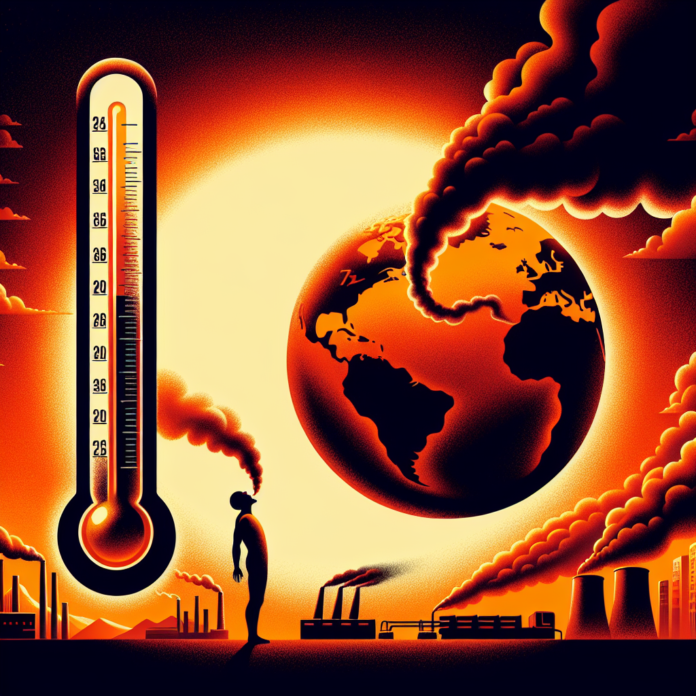Climate Change Increases Temperature and Air Pollution Risks
Climate Change Poses Risks of Increased Temperatures and Air Pollution-Related Mortality, New Study Reveals
According to a recent study published by Yourweather.co.uk, climate change is projected to cause significant increases in temperature, which in turn may lead to higher mortality rates linked to air pollution. The research underscores the urgent need for action to combat climate change and protect public health.
As global temperatures rise due to climate change, the quality of the air we breathe is also expected to deteriorate. Higher temperatures can exacerbate the formation of ground-level ozone, a harmful air pollutant created when sunlight reacts with pollutants from vehicles, industrial facilities, and other sources. This increase in ozone levels can lead to respiratory problems, cardiovascular diseases, and even premature death, particularly among vulnerable populations such as the elderly and those with preexisting health conditions.
The study indicates that as cities continue to grow in size and population, the challenges posed by air pollution will only intensify. Urban areas, often characterized by high traffic congestion and industrial activity, are especially at risk. Moreover, the interaction between climate change and air quality is a complex issue that involves various factors, including emissions from fossil fuels and changes in weather patterns.
In addition to the direct health impacts, the economic implications of rising mortality rates due to air pollution are significant. Increased healthcare costs, lost productivity, and strain on health services could have broader repercussions for economies worldwide.
To mitigate these risks, experts recommend implementing stricter air quality regulations, investing in renewable energy sources, and promoting sustainable transportation options. Public awareness campaigns can also play a crucial role in educating communities about the health impacts of air pollution and the importance of reducing carbon footprints.
Key Findings of the Study
– Climate change is expected to raise global temperatures, contributing to increased air pollution.
– Ground-level ozone levels are projected to rise, leading to higher rates of respiratory and cardiovascular diseases.
– Urban areas are particularly vulnerable to the compounded effects of climate change and pollution.
– The economic burden of air pollution-related health issues could be substantial, affecting healthcare systems and productivity.
In conclusion, the findings of this study serve as a critical reminder of the interconnectedness of climate change, air quality, and public health. Immediate action is necessary to address these challenges and safeguard the well-being of current and future generations.
